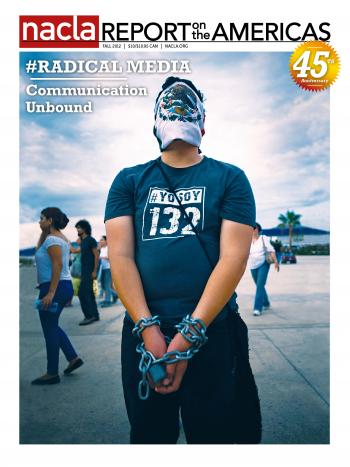Report
With social media and street protest, Mexican students are building a vibrant grassroots movement to challenge the country’s political and economic system.
Many reporters have been killed or cowed into silence. Others have abandoned their profession or gone into exile.
The right to communication means that you don't just have free speech, but also access to the means of communication.
“Mic check!” The Occupy movement has created a new medium for collective listening.
New media forms are being applied by diverse actors, slowly tipping the balance of media power in favor of the active, engaged citizen across the continent.
The recent TIPNIS conflict offers a glimpse into the role of media and democracy under President Evo Morales.
Emmanuel Rozental and Vilma Almendra
The Nasa people have transformed the use of electronic media, placing it at the service of their communities.
During the first decade of the 21st century, Bolivia’s “classic” newspapers have disappeared.
Media in Latin America have traditionally been consolidated into the hands of a few wealthy families and large media conglomerates. Over the last decade and a half, however, several governments in the region, including Venezuela, Ecuador, Argentina, Bolivia, and Uruguay, have moved to democratize media.
Venezuelan citizens are caught in a media war, in which the reporters are the soldiers and information is the weapon.
Cuban digital networks are not only supported by modern technology but by direct exchanges among people.
Groups in Rio de Janeiro are using media to stop evictions in the lead-up to the World Cup and Olympics.
In February 2012, the Chilean Aysén province awoke and the ubiquitous sound of Radio Santa María was there to connect the people.

